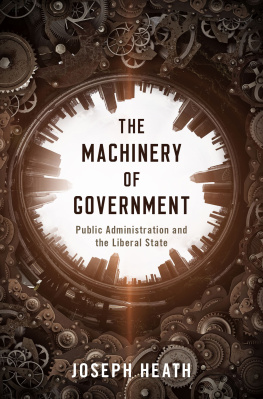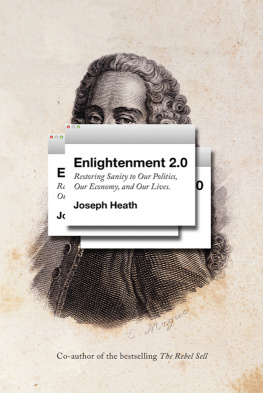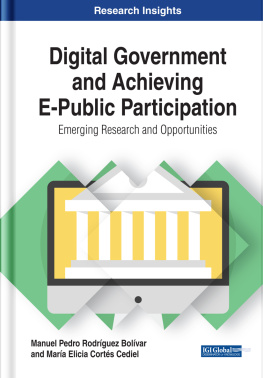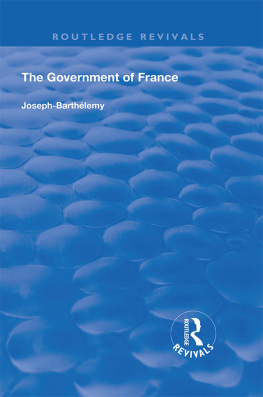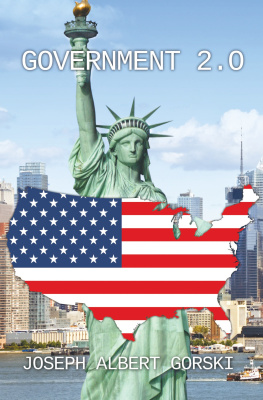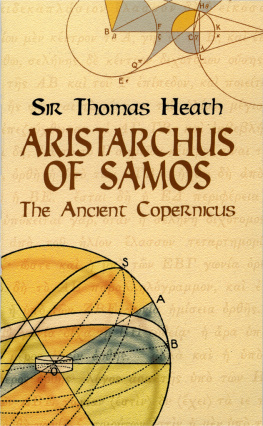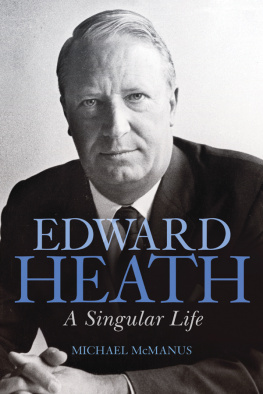Joseph Heath - The Machinery of Government
Here you can read online Joseph Heath - The Machinery of Government full text of the book (entire story) in english for free. Download pdf and epub, get meaning, cover and reviews about this ebook. year: 2020, publisher: Oxford University Press, genre: Politics. Description of the work, (preface) as well as reviews are available. Best literature library LitArk.com created for fans of good reading and offers a wide selection of genres:
Romance novel
Science fiction
Adventure
Detective
Science
History
Home and family
Prose
Art
Politics
Computer
Non-fiction
Religion
Business
Children
Humor
Choose a favorite category and find really read worthwhile books. Enjoy immersion in the world of imagination, feel the emotions of the characters or learn something new for yourself, make an fascinating discovery.
- Book:The Machinery of Government
- Author:
- Publisher:Oxford University Press
- Genre:
- Year:2020
- Rating:5 / 5
- Favourites:Add to favourites
- Your mark:
- 100
- 1
- 2
- 3
- 4
- 5
The Machinery of Government: summary, description and annotation
We offer to read an annotation, description, summary or preface (depends on what the author of the book "The Machinery of Government" wrote himself). If you haven't found the necessary information about the book — write in the comments, we will try to find it.
The Machinery of Government — read online for free the complete book (whole text) full work
Below is the text of the book, divided by pages. System saving the place of the last page read, allows you to conveniently read the book "The Machinery of Government" online for free, without having to search again every time where you left off. Put a bookmark, and you can go to the page where you finished reading at any time.
Font size:
Interval:
Bookmark:


Oxford University Press is a department of the University of Oxford. It furthers the Universitys objective of excellence in research, scholarship, and education by publishing worldwide. Oxford is a registered trade mark of Oxford University Press in the UK and certain other countries.
Published in the United States of America by Oxford University Press
198 Madison Avenue, New York, NY 10016, United States of America.
Oxford University Press 2020
All rights reserved. No part of this publication may be reproduced, stored in a retrieval system, or transmitted, in any form or by any means, without the prior permission in writing of Oxford University Press, or as expressly permitted by law, by license, or under terms agreed with the appropriate reproduction rights organization. Inquiries concerning reproduction outside the scope of the above should be sent to the Rights Department, Oxford University Press, at the address above.
You must not circulate this work in any other form and you must impose this same condition on any acquirer.
Library of Congress Cataloging-in-Publication Data
Names: Heath, Joseph, 1967 author.
Title: The machinery of government : public administration and the liberal state /
Joseph Heath.
Description: New York, New York, United States of America : Oxford University Press, 2020. |
Includes bibliographical references and index.
Identifiers: LCCN 2019055825 (print) | LCCN 2019055826 (ebook) | ISBN 9780197509616 (hbk) |
ISBN 9780197509630 (epub) | ISBN 9780197509623 (updf) | ISBN 9780197509647 (online)
Subjects: LCSH: Public administrationDecision making. | Civil service ethics. | Public interest.
Classification: LCC JF1525.D4 H44 2020 (print) | LCC JF1525.D4 (ebook) |
DDC 352.3/301dc23
LC record available at https://lccn.loc.gov/2019055825
LC ebook record available at https://lccn.loc.gov/2019055826
It is possible to go a long way in political philosophy without actually knowing very much about how the state works. To take just one example, the first time that I was contacted by a former Clerk of the Privy Council, I had to look up the job title to see what the position was. I remember the occasion quite well, because I had recently been hired at the Universit de Montral. The previous year, I had published a popular book, The Efficient Society, offering some philosophical arguments in defense of the welfare state in Canada. My ability to communicate with a broader public in both official languages quickly put me on the radar in Ottawa. And so, somewhat to my surprise, I found myself getting called by federal civil servants, asking me to share with them my thoughts on a range of different topics.
The most daunting invitation that I received during this period was from Jocelyne Bourgon, the aforementioned former Clerk of the Privy Council. She was at the time the head of an agency called the Canadian Centre for Management Development, whose mission was essentially to provide management training within the federal civil service. One of the events that she organized was a monthly dinner for the federal deputy ministers, to which a guest speaker was always invited to animate the discussion. She wanted to know whether I would like to come and discuss my book.
At this point, I should pause to explain some of these job titles. In Canada, a Deputy Minister (DM) is the highest-ranked civil servant within a particular department (equivalent to a Permanent Secretary in the United Kingdom). The Prime Minister, by contrast, does not have a department, but rather presides over the Privy Council Office. The Clerk of the Privy Council is the highest-ranked civil servant within the Privy Council Office, and so is essentially the Deputy Minister to the Prime Minister. The Clerk is also the official head of the public service, and is therefore the highest-ranked unelected official within the executive branch (save for the Queen and her Representative, the Governor-General).
Anyone who followed this should be able to see just how terrifying Bourgons invitation was. Its one thing to write a book defending the welfare state, its quite another to sit down for dinner with the people who actually run the welfare state. Figuring out what to say to them that would not be considered either impractical or banal was enough to induce a minor crisis of self-confidence.
I had plenty of time to ponder these questions. Since Ottawa is not far from Montreal, the easiest way to get to the dinner was to drive. And so, for two hours in the car, I wracked my brain trying to think up something to say to these people that would be less than completely useless. The mere fact that I had no idea who any of them were, or what their jobs entailed, was inauspicious. Philosophy trains you to think about the state in terms of very abstract normative principles. It most emphatically does not teach you to think in terms of policy, much less in operational terms.
In the end, the conversation did not go at all the way I had envisioned. One of the claims I had made in The Efficient Society was that efficiency was the most important value underlying the welfare state (a claim that I will revisit and defend, in greater detail, in of the present work). I was, in fact, cutting corners there, just a bit, for the sake of the popular audience, by using the vague term value to describe any sort of normative standard. Over the course of dinner, I happened to say, as an aside, something along the lines of strictly speaking, efficiency is a principle, not a value. One of the DMs immediately picked up on this and asked, What do you mean, a principle and not a value? I went on to give a somewhat potted explanation of the distinction between the right and the good, which then turned into a discussion of John Rawls.
I could see that not all the DMs were interested in this conversation, but that quickly changed once I began to explain the importance of the distinction in terms of the liberal commitment to neutrality. The conversation was taking place just a few years after Will Kymlicka had published his book Multicultural Citizenship, a work that had a significant impact in Canada, and so I illustrated the idea of neutrality by showing how it guided multiculturalism policy, and the expectation that immigrants will integrate into the institutions of Canadian society without necessarily assimilating into the culture or religion of the majority. I went on to explain how the same sort of constraint generalized across every domain of state activity.
I could see that at this point I had everyones attention, and we spent the rest of the evening discussing the concept of liberal neutrality. I found myself explaining things that in the academic world were considered rather obvious, but that clearly had not worked their way into the vocabulary of state officials. As things were wrapping up, one of the DMs thanked me quite earnestly for the conversation. This idea of neutrality is something that I think we all understand, as part of how we go about our work, but we didnt have the words to explain what we were doing.
On the long drive home, I had ample time to reflect upon the experience. As I suspected, the things that I had planned to say were not that useful or interesting to the DMs. It turned out, however, that I did have something to offer, though it was not what I thought it would be. The biggest surprise was that the conversation had been a lot more philosophical than I expected, in the sense that it had focused almost entirely on abstract normative concepts. I had been trying to think of more practical, less abstract things to say, whereas the DMs actually wanted to talk about big ideas. The difference was that they were more interested in the vocabulary I was using than in the specific arguments I had developed. My value added as a philosopher, it turned out, stemmed from the centuries-long tradition of reflection and debate about political power that has equipped us with the vocabulary and the conceptual apparatus required to express certain aspects of our institutional practices.
Font size:
Interval:
Bookmark:
Similar books «The Machinery of Government»
Look at similar books to The Machinery of Government. We have selected literature similar in name and meaning in the hope of providing readers with more options to find new, interesting, not yet read works.
Discussion, reviews of the book The Machinery of Government and just readers' own opinions. Leave your comments, write what you think about the work, its meaning or the main characters. Specify what exactly you liked and what you didn't like, and why you think so.

